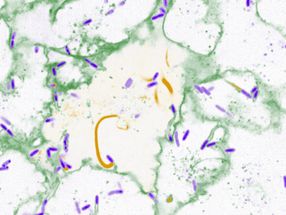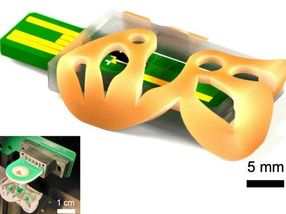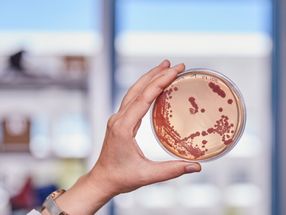New biomarker proposed for coffee consumption studies
In order to record coffee consumption in nutrition and health studies, researchers usually rely on self-reporting by participants. However, this is not always reliable. It would therefore be desirable to conduct additional studies to objectively verify individual consumption using biomarkers. A research team led by the Leibniz Institute for Food Systems Biology at the Technical University of Munich has now validated the suitability of a specific roasted coffee compound and proposes it as a new, practical food biomarker.
Millions of people around the world drink coffee every day. The beverage contains a large number of bioactive substances, and its health effects on the human metabolism are therefore frequently subjects of scientific studies. In many of these studies, however, the data on coffee consumption is largely based on self-reporting by the participants and is therefore not always accurate. This can affect the scientific validity of nutritional studies.
Biomarkers could provide a remedy
Reliable biomarkers could remedy this problem by using biological samples to objectively distinguish between coffee drinkers and non-coffee drinkers. "So far, however, only a few substances are known that could be used as coffee markers," says principal investigator Roman Lang from the Leibniz Institute. “However, these are not yet sufficiently validated or available in sufficient quantities to serve as reference substances for comparative measurements in nutritional studies,” he continues.
The research team, which also includes the nutritional physician Thomas Skurk and first author Beate Brandl from the ZIEL - Institute for Food & Health at the Technical University of Munich, has therefore comprehensively validated the roast coffee compound N-methylpyridinium as one such biomarker candidate for its suitability. Researchers at the Technical University of Munich first proposed the substance as a biomarker candidate in 2011 as part of a pilot study.
Data from over 460 people analyzed
As part of the scientific validation, the team analyzed existing literature data. It also analyzed urine, blood and plasma samples from more than 460 people from Freising and Nuremberg who had participated in a nutrition study conducted by the BMBF-funded enable cluster.
As the study shows, N-methylpyridinium is a compound that is specific to roasted Arabica and Robusta coffee. The substance is chemically very stable and its absorption into the organism is concentration-dependent. The substance can also be easily and reproducibly detected in various body fluids after coffee consumption, before leaving the body unchanged in the urine within a few hours to days.
Roman Lang, who heads the Biosystems Chemistry & Human Metabolism research group at the Leibniz Institute, explains: "As we have shown, N-methylpyridinium fulfills all the criteria that science demands of a biomarker to control food intake. Even if we cannot draw direct conclusions about the amount of coffee consumed due to various factors, the roasting substance is still suitable as a marker. This is because it allows us to distinguish objectively and practically between people who have drunk coffee and those who have not. We therefore propose it as a reliable qualitative biomarker for coffee consumption."
Original publication
Other news from the department science

Get the analytics and lab tech industry in your inbox
From now on, don't miss a thing: Our newsletter for analytics and lab technology brings you up to date every Tuesday. The latest industry news, product highlights and innovations - compact and easy to understand in your inbox. Researched by us so you don't have to.
























































